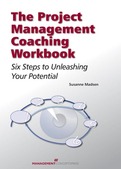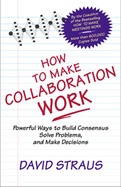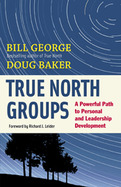Campaign Boot Camp 2.0 is basic training for future leaders who hear a call to service—a voice of conscience that springs from their vision, ideas, and values—and want to translate that call into positive change. Pelosi outlines the seven essential steps to winning: identify your call to service, define your message, know your community, build your leadership teams, raise the money, connect with people, and mobilize to win. Each chapter concludes with a “Get Real” exercise so readers can personalize and integrate these ideas into individual efforts.
In this edition, Pelosi updates the book's “Call to Service” profiles of political leaders and their calls to service; details the expanding role of social media, the Internet, and technology as message multipliers; explores challenges unique to women candidates; and expands on the power of volunteers.
- Detailed, practical advice on how to win any kind of campaign
- Written by a veteran activist with a lifetime of experience running campaigns at every level
- Updated throughout, including new information on using social media, challenges unique to women, and the power of volunteers
My political activism began in the stroller, writes Christine Pelosi. As the daughter of Congresswoman and former House Speaker Nancy Pelosi, Christine is almost literally a born campaigner. She knows politics and policy inside out: shes served as an attorney in the Clinton-Gore administration, on Capitol Hill as a Congressional chief of staff, and as a San Francisco prosecutor. She has conducted boot camps in over thirty states and in three countries, working with dozens of successful candidates for office from city council to US congress. In Campaign Boot Camp 2.0, Pelosi presents leadership lessons from the campaign trail from a diverse array of over forty public figures, lending advice for anyone who wants to run for office, advocate for a cause, or win a public policy issue.
Campaign Boot Camp 2.0 is basic training for future leaders who hear a call to servicea voice of conscience that springs from vision, ideas, and valuesand want to translate that call into positive change. Pelosi offers the seven essential steps to winning: identify your call to service, define your message, know your community, build your leadership teams, raise the money, connect with people, and mobilize to win. Each chapter concludes with a Get Real exercise so readers can personalize and integrate these ideas into individual efforts.
In this edition, Pelosi updates the books Call to Service examplesprofiles of current political leaders and what motivated them to enter public service; details the expanding role of social media, the Internet, and technology as message multipliers; explores challenges unique to women candidates; and expands on the power of volunteers.
2007
- Offers a systematic approach to overcoming one of many people's greatest fears: asking for help
- Explores why we are so reluctant to ask for help as well as precisely how to ask for it
- Illustrated with personal stories and anecdotes from the author's coaching practice
2011
Firms foul the planet but keep raking in revenue.
Reckless greed on Wall Street goes largely unpunished.
More evidence that bad guys finish first in business?
No. A different story is unfolding.
Laurie Bassi and her coauthors show that despite the dispiriting headlines, we are entering a more hopeful economic age.
The authors call it the “Worthiness Era.” And in it, the good guys are poised to win.
Good Company explains how this new era results from a convergence of forces, ranging from the explosion of online information sharing to the emergence of the ethical consumer and the arrival of civic-minded Millennials. Across the globe, people are choosing the companies in their lives in the same way they choose the guests they invite into their homes. They are demanding that companies be “good company.”
Proof is in the numbers. The authors created the Good Company Index to take a systematic look at Fortune 100 companies' records as employers, sellers, and stewards of society and the planet. The results were clear: worthiness pays off. Companies in the same industry with higher scores on the index—that is, companies that have behaved better—outperformed their peers in the stock market. And this is not some academic exercise: the authors have used principles of the index at their own investment firm to deliver market-beating results.
Using a host of real-world examples, Bassi and company explain each aspect of corporate worthiness and describe how you can assess other companies with which you do business as a consumer, investor, or employee. This detailed guide will help you determine who the good guys are—those companies that are worthy of your time, your loyalty, and your money.
By the coauthor of the classic How to Make Meetings Work (more than 600,000 copies sold) and the originator of many of the most popular group decision-making methods
Describes five time-tested principles for making collaborative efforts more effective, efficient, and even joyful
Offers examples from Fortune 500 companies, nonprofit organizations, and communities to illustrate the principles in action
Every day we work with others to solve problems and make decisions, but the experience is often stressful, frustrating, and inefficient. In How to Make Collaboration Work, David Straus, a pioneer in the field of group problem solving, introduces five principles of collaboration that have been proven successful time and again in nearly every conceivable setting.
Straus draws on his thirty years of personal and professional experience to show how these principles have been applied by organizations as diverse as Ford Motor Company, the U.S. Environmental Protection Agency, Harvard Business School Publishing, Boston Public Schools, Kaiser Permanente, the city of Denver, and many others.
How to Make Collaboration Work shows how collaboration can become a joy rather than a chore-a kind of chemical reaction that releases far more energy than it consumes.
- By the coauthor of the classic How to Make Meetings Work (more than 600,000 copies sold) and the originator of many of the most popular group decision-making methods
- Describes five time-tested principles for making collaborative efforts more effective, efficient, and even joyful
- Offers examples from Fortune 500 companies, nonprofit organizations, and communities to illustrate the principles in action
2011




























